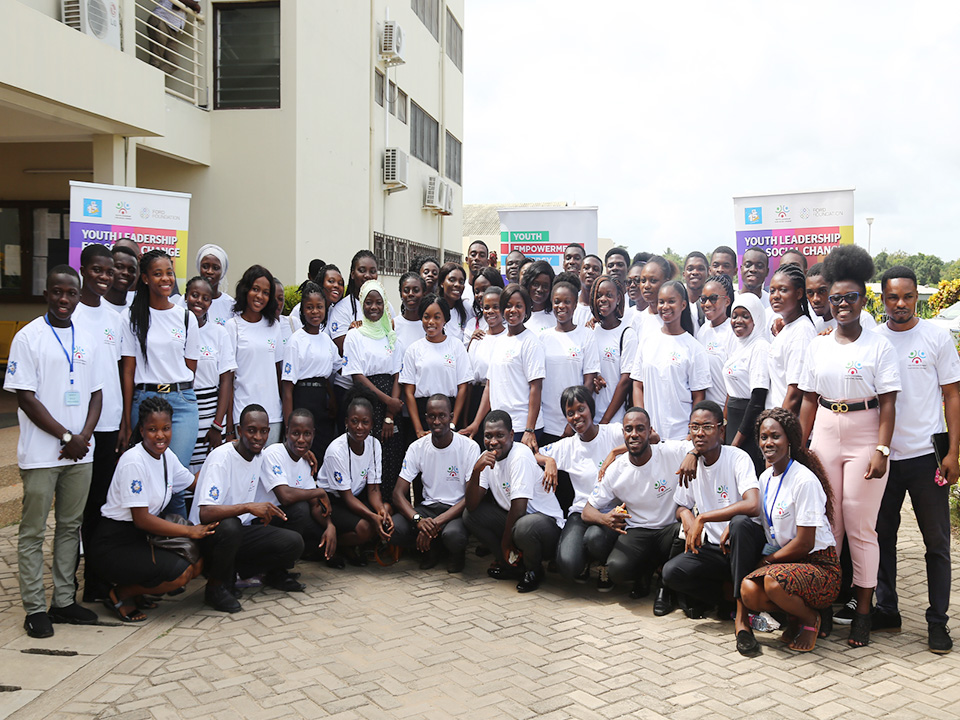Youth Empowerment Synergy (YES-Ghana) has awarded grants to some students of the University at an innovation fair on campus.
In all, the students who are in groups of five were awarded a total grant of GH ¢ 100, 000 to implement social change and social justice interventions either on campus or surrounding communities of the University. Each group would be presented with funds ranging from GH ¢14, 000 to GH ¢20, 000 to undertake on projects to address the challenges they have identified in these communities.
Youth Leadership for Social Change
Speaking at the programme, the Project Manager of YES Ghana, Mr. Eric Saforo, said the innovation was part of the Youth Leadership for Social Change Project being implemented by YES-Ghana in collaboration with the University of Cape Coast (UCC), University for Development Studies (UDS) and University of Energy and Natural Resources with funding from the Ford Foundation. He noted that students, who were now fellows of YES-Ghana, had received rigorous training in leadership for social change through the Youth Academy for Social Change. “They have continuously received professional mentoring from selected faculty members and industry players and the next stage is for them to practically demonstrate the knowledge and skills they have acquired” he explained.
According to Mr. Sarforo, “The practical application of the skills, knowledge, and understanding gained through the Youth Academy for Social Change is essential in ensuring that the fellows learn to generalize and apply what they have learned in other situations”. He noted that through the process, the youth leaders would become more involved in their communities, and provide real services to the identified communities.
Criteria for Selection of Universities
Explaining the criteria for the selection of the universities, Mr. Saforo said YES-Ghana chose the three institutions because of the poverty levels prevalent in the regions where the universities were located. He indicated that the fellows had proposed innovative solutions to address some of the problems in the identified communities. “A proposal assessment committee comprising faculty members and experienced development workers have facilitated the process in which groups of participants selected priorities and designed projects” he noted.
Mr. Saforo explained that the fellows would receive the necessary technical support to lead the implementation of their group projects, including managing their activities, leveraging stakeholder involvement, networking opportunities, continuous learning, and support with financial and reporting among others.
Presentation by Groups
Each of the five groups that benefited from the grant made a presentation on their projects with comments from a panel made up of lecturers from UCC. Their projects focused on tackling sanitation at Amamoma community; tackling teenage pregnancy at Kwaprow; making life comfortable for disabled students at UCC and tackling poor academic performance of pupils at Kwaprow.

